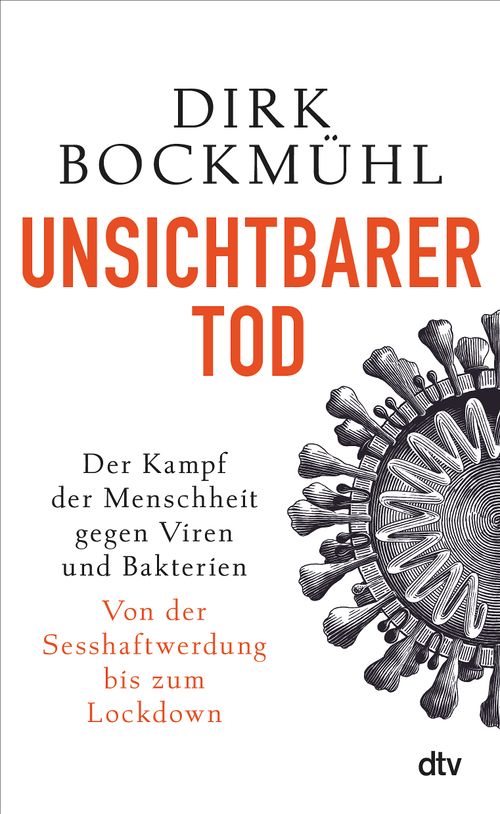Invisible Death
Non-Fiction, Popular Science
"The microbes have the last word." Louis Pasteur
In the beginning, there was a lockdown: humans settled down, and animals joined them. It was convenient. But deadly. As our ancestors could not explain why death occurred, they looked to the gods for answers. This is how religious hygiene and food regulations came into being. Humans eventually figured out the value of clean streets, fresh water, and well-ventilated apartments; they discovered germs and penicillin. Dirk Bockmühl, Professor of Hygiene and Microbiology, takes us on a fascinating journey through the history of civilization, religions, architecture, medicine, and science. He tells a story with no conclusion, as we are writing an essential chapter at this very moment.
• The first 10,000 years of civilization's eventful fight against microbes
• A fascinating overview by the leading German hygienist
• For readers of Siddhartha Mukherjee, Jared Diamond, Yuval Noah Harari
"The microbes have the last word." Louis Pasteur
In the beginning, there was a lockdown: humans settled down, and animals joined them. It was convenient. But deadly. As our ancestors could not explain why death occurred, they looked to the gods for answers. This is how religious hygiene and food regulations came into being. Humans eventually figured out the value of clean streets, fresh water, and well-ventilated apartments; they discovered germs and penicillin. Dirk Bockmühl, Professor of Hygiene and Microbiology, takes us on a fascinating journey through the history of civilization, religions, architecture, medicine, and science. He tells a story with no conclusion, as we are writing an essential chapter at this very moment.
• The first 10,000 years of civilization's eventful fight against microbes
• A fascinating overview by the leading German hygienist
• For readers of Siddhartha Mukherjee, Jared Diamond, Yuval Noah Harari


.jpg)